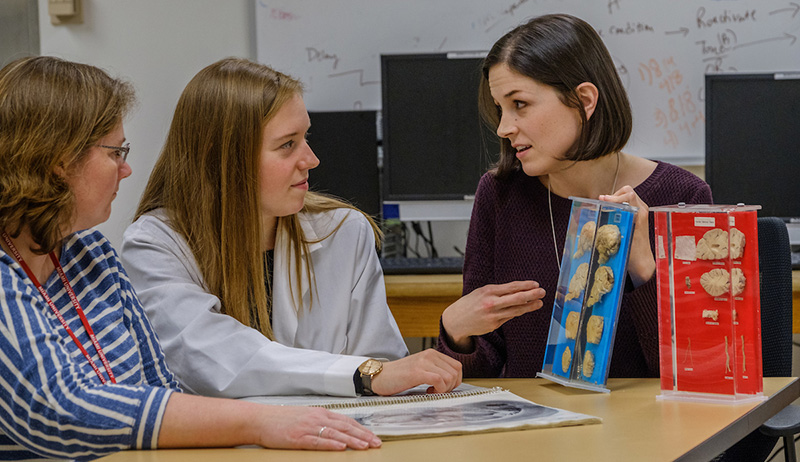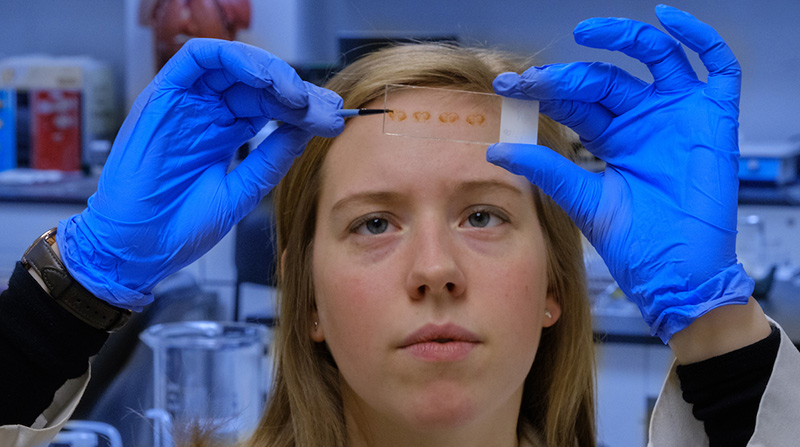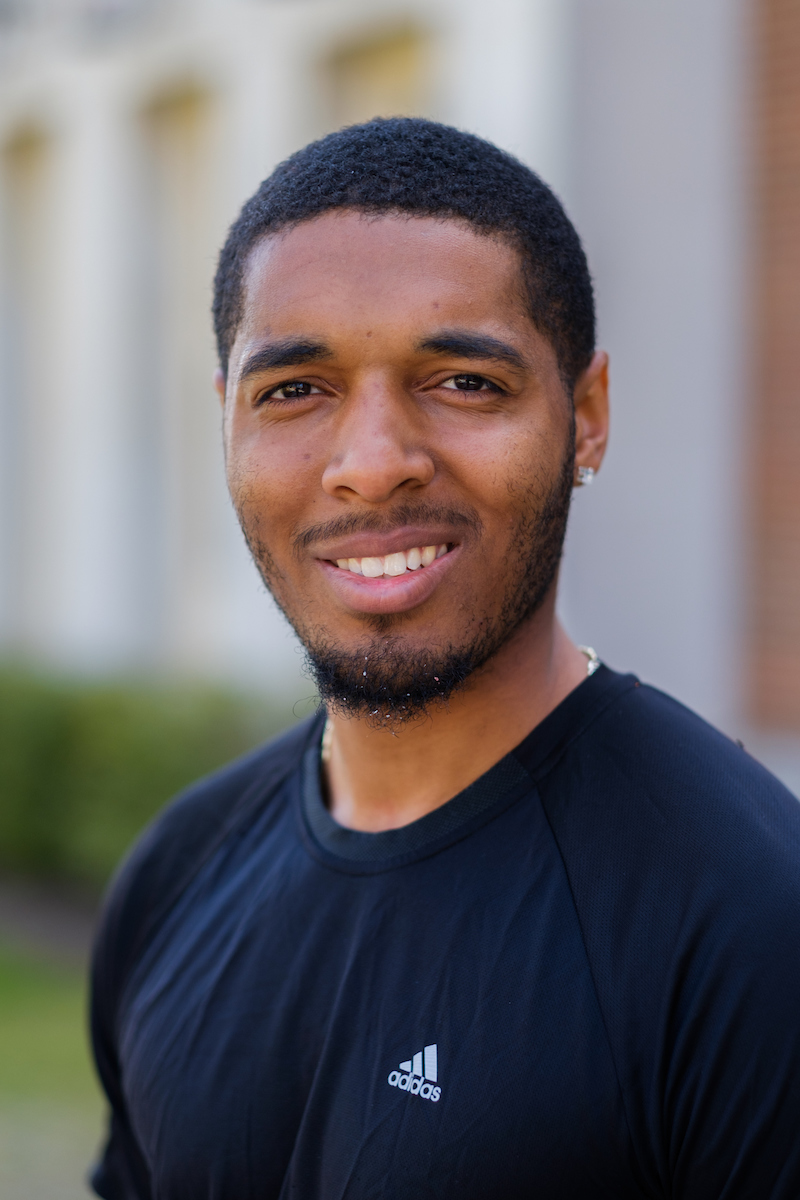

Undergraduates conduct research projects for better health choices
By Tracy Chappelow, university communications and marketing
Lamuel Bean wants to improve the health of communities. Katherine Rodriguez is influenced by her career goal of becoming a neonatologist. And Isabel Held’s tragic loss of a friend motivated her to research the connection between neurology and behaviors.
These three Miami undergraduates are all researching different aspects of alcohol addiction.
All three were awarded funding to focus on their research through Miami’s Undergraduate Summer Scholars Program. The program selects students and their projects for class credit, a summer stipend and the guidance of a mentoring professor. Several continued their research beyond last summer.
Isabel Held works with Jennifer Quinn and Anna Radke, faculty members in psychology.
Infant stress and adult susceptibility
Isabel Held, a psychology major, said, “When I joined Dr. Jennifer Quinn's lab, I was able to conduct research on infant stress, focusing specifically on one of the most influential times in a person's life: the time from infancy up to adolescence.”
Held’s research is part of the ongoing, multiple-year study.
“The findings of this research can show us whether or not a specific traumatic event in a person's childhood makes that person more susceptible to addiction. Additionally, the findings allow us to look deeper into the neurobiology of addiction, and perhaps to eventually find a successful treatment for addiction.”
Quinn, an associate professor of psychology, is in the department’s Behavioral Neuroscience Laboratories, a collaborative group of faculty, graduate students and undergraduate students.
Anna Radke, assistant professor of psychology, is another faculty member in the lab who is working with Held. “Together, Dr. Radke and I dig into the field’s literature. It’s pretty amazing to research something with my professor,” says Held.
The infant stress research is a collaborative project between Radke and Quinn, who say they relied on Held to drive the project as part of her departmental honors thesis.
Miami’s commitment to undergraduate research is what drew Radke to the university. She currently has eight undergraduates working in her lab. Quinn also emphasizes student partnership. She said, “I don’t do research without undergraduates participating.”
Katherine Rodriguez plans to become a neonatologist.
Insights into adolescent binge drinking
“I wanted to get more involved with a project that I could take responsibility for and ask a question that I thought was clinically and socially important,” said psychology major Katherine Rodriguez. “This project was also applicable to my future career goals of becoming a neonatologist, so this motivated me further.”
Adolescent alcohol consumption is very common. At the same time, most young people don’t know the social and biological consequences of participating in binge drinking.
Her research asked, “What is more rewarding for adolescents: drinking in a social context or the physiological effects of alcohol? And do these motivators contribute to the development of addiction?”
As happens so often in research, more detailed studies are needed. In the upcoming year, she will be working on a project that will further the alcohol literature and focuses on the biological alterations that result from drinking during early or late adolescence.
But in the big picture, Rodriguez hopes that the results of this study and others could lead to novel treatments or different approaches for educational programs surrounding adolescent alcohol abuse.
For both the research into adolescent binge drinking and infant stress, all studies were done exclusively with laboratory rats and mice. Radke said, “The benefit of using animals in our research is that we can explore the neurobiology in much greater depth than is possible in humans. Additionally, while we can’t ethically assign these experiences to humans, we can control the variables in animals.”
Lamuel Bean is studying public health.
Drinking and overexercising
Alcohol consumption is prevalent in college communities. That’s a well-known fact. What isn’t so well-known is if drinking can affect how people’s bodies burn calories. Because many students believe they’ll ramp up their body’s rate of burning calories if they increase their physical activity, it’s led to an increase in drunkorexia – a nonmedical term that describes overexercising to avoid gaining weight from drinking.
Public health major Lamuel Bean wanted to find out if there was a relationship between the number of calories burned at rest in order to maintain vital functions (Basal Metabolic Rate) and alcohol consumption. In his research, he was mentored by Rose Marie Ward, a professor in kinesiology and health and an expert in the study of addictive behaviors.
“As a future public health professional, my goal is to promote prevention,” Bean said.
After analyzing a study sample of 468 males and females, Bean found very little relationship between alcohol consumption and Basal Metabolic Rate. But he also says that future research studies may have more sophisticated technology for calculating the data and then be able to better educate the public about alcohol use.


